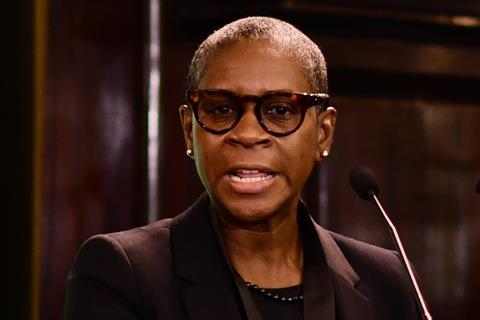The government’s economic crime levy is unjustified, arbitrary and will damage the competitiveness of the UK legal sector, the Law Society has warned in response to draft legislation published this week.
On Tuesday, HM Treasury opened a ‘technical consultation’ on draft legislation for the levy, which aims to raise £100m per year by taxing businesses that are subject to UK money laundering regulations and have annual revenue of over £10.2m.
Law Society president I. Stephanie Boyce said: ‘On principle, we have strongly opposed the imposition of the levy from the start and are disappointed the UK government has decided to move forward with it. Law firms play an important role in tackling money laundering, as demonstrated by the substantial resources allocated by the profession to comply with its anti-money laundering (AML) and financial crime obligations.'
Boyce added that the levy – which is due to be introduced in the financial year 2023/2024 – ‘effectively represents a tax on the provision of legal services, undermining the competitiveness of a key British industry, at a time when the sector should be championed’.

‘Imposing a levy based on a firm’s revenue is an arbitrary measure, and means there is no link between the amount a business is required to pay and the extent of the risk it brings into the system.’
According to the draft legislation, an entity with ‘medium’ UK revenue – defined as between £10.2m and £36m per levy year – will be charged between £5,000 and £15,000 annually. Those with ‘large’ revenues – between £36m and £1bn per levy year – will be charged between £30,000 and £50,000 annually. Meanwhile, companies with ‘very large’ revenues of more than £1bn per levy year will be charged between £150,000 and £250,000.
The Law Society welcomed the fact that small firms are exempt from the levy, but questioned why the smallest entities within each band should pay as much as the largest. ‘This seems a very blunt instrument to use and we would have thought a more refined approach would be better,’ Boyce said.
‘It is disappointing the UK government has decided to penalise the profession when it is already devoting resources to prevent the system from being abused by money launderers. We will continue to lobby as the legislation makes its way through parliament, to ensure our members’ interests are represented.’



























5 Readers' comments